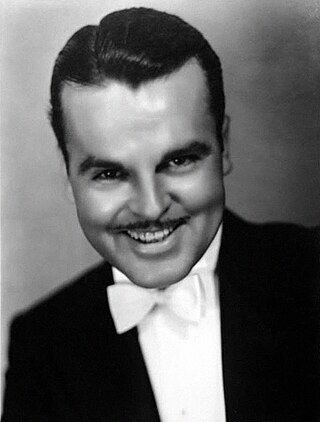
James Neil Hamilton was an American stage, film and television actor, best remembered for his role as Commissioner Gordon on the Batman TV series of the 1960s, having first played a character by that name in 1928's Three Week-Ends. During his motion picture career, which spanned more than a half century, Hamilton performed in over 260 productions in the silent and sound eras.

Edward Brewster Sheldon was an American dramatist. His plays include Salvation Nell (1908) and Romance (1913), which was made into a motion picture with Greta Garbo.

Lionel Alfred William Atwill was an English and American stage and screen actor. He began his acting career at the Garrick Theatre. After coming to the United States, he appeared in Broadway plays and Hollywood films. Some of his more significant roles were in Captain Blood (1935), Son of Frankenstein (1939) and To Be or Not to Be (1942).

Greta Nissen was a Norwegian-American film and stage actress.

Helen Mack was an American actress. She started her career as a child actress in silent films, moving to Broadway plays and touring one of the vaudeville circuits. Her greater success as an actress was as a leading lady in the 1930s. She made the transition to performing on radio and then into writing, directing, and producing shows during the Golden Age of Radio. She later wrote for Broadway, stage and television. Her career spanned the infancy of the motion picture industry, the beginnings of Broadway, the final days of vaudeville, the transition to sound movies, the Golden Age of Radio, and the rise of television.
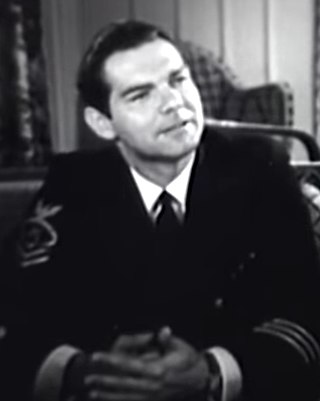
Weldon Heyburn was an American character actor.
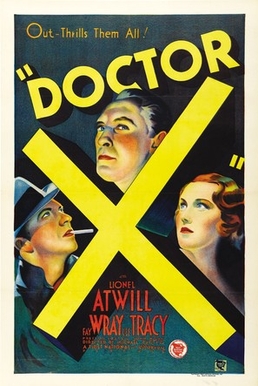
Doctor X is a 1932 American pre-Code mystery horror film produced jointly by First National and Warner Bros. Based on the 1931 play originally titled The Terror by Howard W. Comstock and Allen C. Miller, it was directed by Michael Curtiz and stars Lionel Atwill, Fay Wray and Lee Tracy.
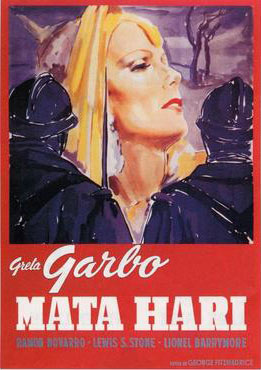
Mata Hari is a 1931 American pre-Code drama film directed by George Fitzmaurice loosely based on the life of Mata Hari, an exotic dancer and courtesan executed for espionage during World War I. The Metro-Goldwyn-Mayer film stars Greta Garbo in the title role. It was Garbo's most commercially successful vehicle. Only a censored version of the film is currently available.
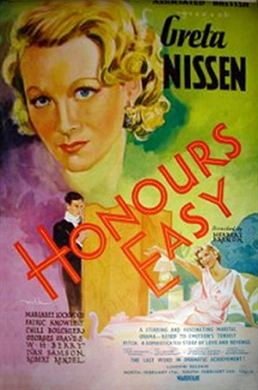
Honours Easy is a 1935 British drama film directed by Herbert Brenon and starring Greta Nissen, Patric Knowles and Margaret Lockwood. It follows a man who tries to take revenge on a rival for a slight seventeen years before by framing his son for theft. It was based on the play Honours Easy by Roland Pertwee.

The Age of Innocence is a 1934 American drama film directed by Philip Moeller and starring Irene Dunne, John Boles and Lionel Atwill. The film is an adaptation of the 1920 novel The Age of Innocence by Edith Wharton, set in the fashionable New York society of the 1870s. Prolific on Broadway, Philip Moeller directed only two films: this, and the 1935 Break of Hearts with Katharine Hepburn.

High Pressure is a 1932 American pre-Code comedy film directed by Mervyn LeRoy and starring William Powell and Evelyn Brent. It is based on the play Hot Money by Aben Kandel. The film is preserved at the Library of Congress and in the Warner Archive.

No One Man is a 1932 American pre-Code drama film starring Carole Lombard and Ricardo Cortez, and directed by Lloyd Corrigan. It is based on a novel by Rupert Hughes.
This is a summary of 1938 in music in the United Kingdom.

Two Kinds of Women is a 1932 American pre-Code drama film directed by William C. deMille, written by Benjamin Glazer, adapted from the play by Robert E. Sherwood, and starring Miriam Hopkins, Phillips Holmes, Irving Pichel, Wynne Gibson, Stanley Fields and Vivienne Osborne. It was released on January 16, 1932, by Paramount Pictures.

Rackety Rax is a 1932 American pre-Code comedy action film directed by Alfred L. Werker and starring Victor McLaglen, Greta Nissen and Nell O'Day.
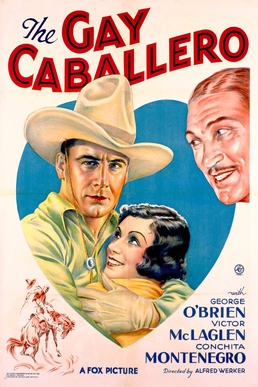
The Gay Caballero is a 1932 American pre-Code Western film directed by Alfred L. Werker and written by Barry Conners and Philip Klein. The film stars George O'Brien, Victor McLaglen, Conchita Montenegro, Linda Watkins, C. Henry Gordon and Weldon Heyburn. The film's screenplay was adapted from the novel The Gay Bandit of the Border by Tom Gill. The film was released on February 14, 1932, by Fox Film Corporation.
The Flying Fifty-Five is a 1924 British silent sports film directed by A. E. Coleby and starring Lionelle Howard, Frank Perfitt and Lionel d'Aragon. It is based on a 1922 novel of the same name by Edgar Wallace, and was remade as a sound film in 1939.

The Butter and Egg Man is a 1928 American silent comedy film directed by Richard Wallace and starring Jack Mulhall, Greta Nissen, and Sam Hardy. It is based on the 1925 play The Butter and Egg Man. It was remade by the studio's successor company Warner Brothers as a sound film Hello, Sweetheart in 1935.
The Social Buccaneer is a 1916 American silent drama film directed by Jack Conway and starring J. Warren Kerrigan, Louise Lovely and Maude George.
The Outsider is a play by the British writer Dorothy Brandon. It portrays the struggle of an unorthodox medical practitioner to gain acceptance by the medical establishment. It was subsequently revised to show the unconventional triumphing over the conventional, whereas the play had originally had the opposite ending.

















